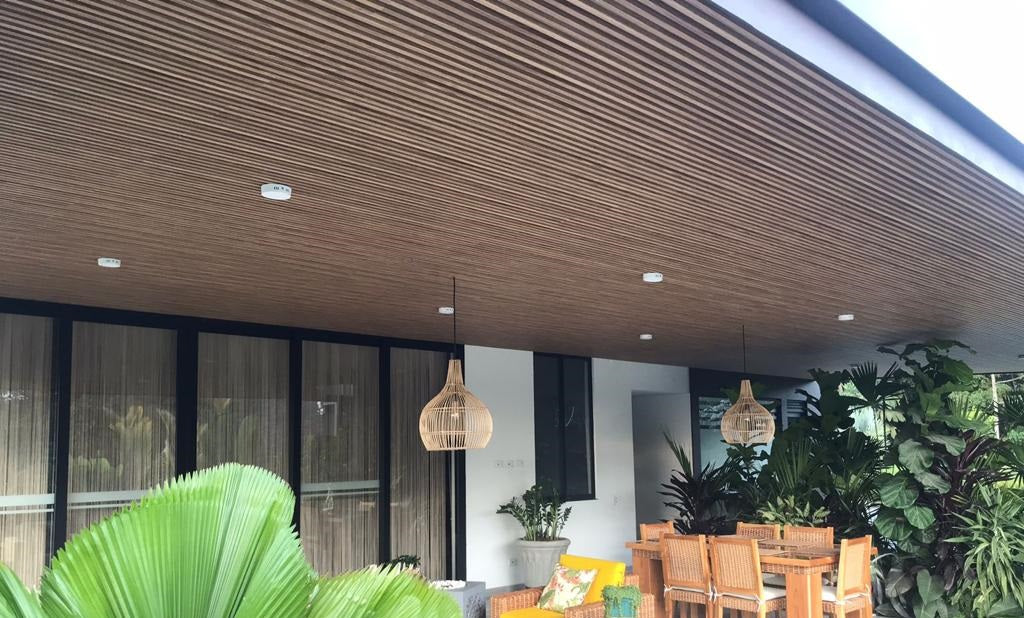In the continuous search for more sustainable solutions in interior and exterior construction and design, WPC (Wood Plastic Composite) panels have emerged as a promising alternative. Combining wood fibres with plastic polymers, these panels offer a number of benefits for both the environment and builders and designers. In this blog post, we’ll explore how WPC panels are contributing to building a more sustainable future.
Reduced use of natural wood
One of the highlights of WPC panels in terms of sustainability is their ability to reduce dependence on natural wood. By using recycled wood fibres or from renewable sources, these panels help preserve forests and minimize deforestation, a crucial factor in combating climate change and conserving biodiversity.

Recyclability and extended life cycle
WPC panels are highly recyclable and can be reused in other applications or re-processed at the end of their life. This contrasts with many conventional building materials, whose recycling process may be more complex or limited. In addition, the durability of WPC panels means they have an extended life cycle, reducing the need for frequent replacement and minimizing waste.
Weather and wear resistance
The resistance of WPC panels to moisture, insects and rot means that they require fewer chemicals for maintenance compared to treated wood. This not only reduces the environmental impact of the chemicals used, but also extends the life of the panels and reduces the amount of waste generated by frequent maintenance and replacement.

WPC panels represent a significant step towards a more sustainable future in the construction and design industry. By reducing dependence on natural wood, offering a long life cycle and minimizing the environmental footprint in its manufacture and maintenance, these panels are helping to build a more balanced and environmentally friendly world. By choosing WPC panels, we are not only opting for durable and aesthetically appealing materials, but we are also actively contributing to protecting our planet for future generations.

